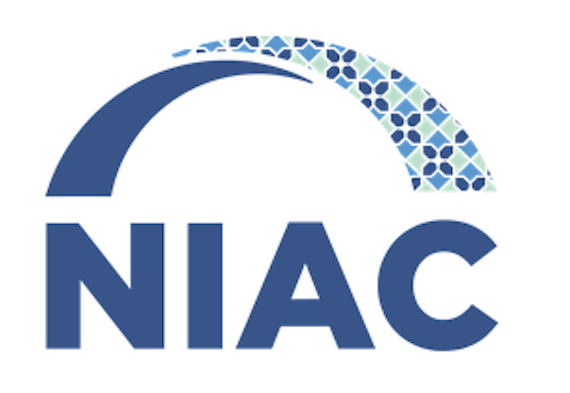These are the top-level findings of a poll conducted by the National Iranian American Council and YouGov of views of Iranian-Americans. However, note that it was conducted before the Israel-Iran 12-Day War that began on June 12, so some views may have changed. NIAC is the most sensible and best organized of the Iranian-American community groups, and I serve on its community council.
The polling shows that Iranian-Americans are not nearly as right-wing as people assume. A majority voted Democratic in the recent presidential election. They are mostly against Israel’s war on Gaza, they’re against Trump’s travel ban on Iranians, they favor negotiations over military force as a way to resolve the Iranian nuclear issue and a majority didn’t want the US to attack Iran militarily.
NIAC reports the top-level findings:
“Finding 1: a majority of Iranian Americans oppose U.S. military action against Iran, 53%-36% , with a plurality of 37% saying they “strongly oppose” U.S. attacks on Iran. NIAC staff expects this number has shifted in light of recent events and looks forward to testing out whether opposition to military strikes on Iran has grown within the community. Finding 2: A strong majority of Iranian Americans supports a new agreement that guards against Iran securing nuclear weapons, 62% – 24%, with a plurality (33%) strongly supporting such an agreement.
Support for a new nuclear agreement with Iran is reflected in the general population as well, 63% – 12%. Finding 3: For the 24% of the Iranian-American community that opposed a new nuclear agreement with Iran, 55% indicated that they opposed an agreement out of concern that it could strengthen the Iranian government. Similarly, 52% of the opponents of a deal in the Iranian-American community said they would oppose any agreement with the Iranian government.
By contrast, only 9% of opponents of a new nuclear agreement with Iran indicated that they do not want Iran to limit its nuclear program.
Finding 4: Among the 62% of Iranian-American respondents who support a new nuclear agreement with Iran, a strong majority of 62% said their support is out of hope that an agreement could improve the lives of the Iranian people. Additionally, 59% of those respondents indicated their support is because they do not want there to be a war.
When the same question was posed to a general population sample of Americans, similar shares support a new agreement, but the mix of reasons for their support for this new agreement was slightly different. For the 63% of the general population respondents that support a new agreement, a strong majority of 60% signaled that they did so because they do not want Iran’s government to secure a nuclear weapon. Likewise, 60% of those same respondents indicated their support is because they do not want there to be a war. By contrast, 35% said their support was out of hope that a new nuclear agreement could improve the lives of the Iranian people.
Finding 5: Among both Iranian Americans and the general population, diplomacy is ranked as likely to be the most successful in addressing a range of concerns with the Iranian government – including on Iran’s nuclear program, human rights and regional security – in contrast to both war and military action and sanctions.
Nearly half of Iranian Americans (49%) believe diplomatic negotiations will be most successful in preventing Iran from securing nuclear weapons. By contrast, just 22% said war or military operations would be the most effective means to prevent a nuclear-armed Iran, while 8% cited sanctions. The remainder either didn’t believe the U.S. should pursue this goal (8%) or gave some other answer (13%).
Finding 6: a majority of Iranian Americans (52%) believe that the U.S. should target sanctions narrowly against Iran’s leadership, but not the entire economy. By contrast, 21% believe sanctions should be broad and target the entire Iranian economy while 14% believe the U.S. should not sanction Iran at all.
Finding 7: a strong majority of Iranian Americans (62%) believes the U.S. should focus more on human rights in Iran. By contrast, 15% believes the current U.S. focus is appropriate and 7% believes the U.S. focuses too much on this issue.

Finding 8: a strong majority of Iranian Americans opposes the travel ban, 66% – 26%, which President Trump imposed on June 5, 2025, halting the issuance of visas to Iranians. A clear plurality (48%) strongly opposes the travel ban.
Finding 9: The polling indicates that, while there are a diversity of views in the Iranian-American community, President Trump and his policies toward Iran and Iranians have rarely received support from a majority of the Iranian-American community. This is apparent in recent elections, where Kamala Harris received an estimated 53% of the Iranian-American vote, in contrast to Donald Trump receiving an estimated 39% of the Iranian-American vote. In the 2020 election, the contrast was more stark, with Joe Biden receiving an estimated 65% of the Iranian-American vote in contrast to just 32% for Donald Trump. It is also evident in views toward Trump’s decision to exit the Iran nuclear deal, opposed by a margin of 47% – 36% amongst the Iranian-American community. A strong majority also opposes the travel ban, 66% – 26%.
Finding 10: Most Iranian Americans oppose Israel’s military actions in Gaza, 60% – 32%. A plurality of 44% strongly opposes Israel’s military actions in Gaza. By contrast, the general population is more evenly split in this poll (with a much larger share saying they are ‘not sure’ – 26% in the general population compared to 8% among Iranian Americans).”

 © 2026 All Rights Reserved
© 2026 All Rights Reserved